#Catholic popes
Explore tagged Tumblr posts
Text

Happy Feast Day
Pope Saint Damasus I
305-384
Feast Day: December 11
Patronage: Archaeologist, against fever
Saint Damasus was 60 years old and a deacon when he was elected Pope during a troubled but pivotal period of the Church. The Arian heresy was raging, an antipope was trying to usurp him yet he zealously defended and served the Church. He commissioned St. Jerome to translate Scriptures into Latin, changed the liturgical language of the Church from Greek to Latin, restoring and creating access to the catacombs, drained the swamps of Rome, and encouraged veneration of the martyrs.
Prints, plaques & holy cards available for purchase. (website)
22 notes
·
View notes
Text
Super short lesson on what an encyclical is: a special letter from the pope that is meant to be addressed to a wide range of people, on a big social issue of the day. The modern concept of papal encyclicals was kicked off by Leo XIII's Rerum novarum, on work and human labor, in which he decried poor working conditions and defended unions and good wages. Papal encyclicals are foundational to what is known as Catholic social teaching or Catholic social thought, the social justice tradition of the Church.
Rerum novarum
Mater et magistra
Pacem in terris
Populorum progressio
Humanae vitae
Evangelium vitae
Fides et ratio
Deus caritas est
Caritas in veritate
Laudato si'
Fratelli tutti
#catholic popes#papal encyclicals#rerum novarum#mater et magistra#pacem in terris#populorum progressio#humanae vitae#evangelium vitae#fides et ratio#deus caritas est#caritas in veritate#laudato si#fratelli tutti#pope francis#pope benedict xvi#pope john paul ii#pope john xxiii#pope paul vi#pope leo xiii#catholic#catholicism#theology
21 notes
·
View notes
Text
In a brilliant essay, “Decolonial Theology and Changing the Global Church” on the Berkley Forum, Dr. Debora Tonelli says that “At the end of official colonialism, religion has often been the space in which colonized people have fought to build their new identity.” With regard to Indigenous nations and peoples, I would suggest a slight modification of that concept: “...the religion of the invaders has often been the space in which dominated and colonized peoples, those who have survived the intergenerational onslaught, have fought to build a new identity under an imposed system of domination.
My inspiration for that modification comes from a number of Vatican papal decrees issued by various popes during the fifteenth century (1436, 1452, 1454, 1455, 1456, 1481, 1493, 1506, and 1514). The Latin language of those documents is quite useful. It provides insight into the church-state coalition that served as an engine, so to speak, for establishing a system of domination over distant non-Christian lands during the so-called Age of Discovery.
Are the Papal Bulls Political Documents of Christian Empire?
While present-day Catholic Church experts tend to say that the language of those papal bulls is not part of official Church teaching, this is beside the point. Years ago, in 1992, Bishop (now Archbishop) Charles J. Chaput told me that the papal bulls I was referring to were “political documents.” I think he meant that they are not based on and do not express official church teachings.
I understand his use of the phrase “political documents” to mean that those papal decrees expressed the political intention of the popes of the Holy See, an intention to extend the system of domination of Western Christendom to distant lands in a spirit of “Christian empire” (Christiani imperii, in the Latin language of the bulls). This was to be accomplished by “reducing the barbarous nations” (ac barbarae nationes deprimantur) to subjection or domination.
The more egregious political language of those documents, going back to the Dum Diversas of 1452, expressed the directive to “invade, capture, vanquish, and subdue” non-Christians; “reduce their persons to perpetual slavery”; “take away all their possessions and property”; and “convert” the land, meaning to unlawfully or wrongfully take away that which belongs to another.
That kind of language provides us with the insight into what happens when free and independent nations and peoples have been invaded and deadly colonial patterns have been brutally imposed on them for generations, in the name of “the state” and Jesus. A resulting system of domination will then become “the space” within which Dr. Tonelli says that colonized people have fought to build “a new identity,” and within which they will perhaps “struggle for independence.”
However, this “new” identity will be a “colonized” rather than a liberated one. The colonized will then be working toward a form of independence under and subject to the imposed Christian European system of domination. Curiously, Dr. Tonelli’s account does not envision dominated (colonized) nations and peoples working to restore their original free and independent existence, by liberating themselves from the imposed system of Christian empire and domination.
Dominorum Christianorum: Christian Dominators
During a 2016 meeting with the Pontifical Council for Justice and Peace, I said to Archbishop Silvano Tomasi, “With respect, I believe there is much of your own history you don’t know. Let me ask you, have you ever actually read the papal bulls” from the fifteenth century? He replied, “No, I must confess.” The point being that most Catholics and even some of the highest Church officials have never studied the Latin language of those Church documents, and certainly not from an Original Nations or Indigenous peoples’ perspective.
A book published by the U.S. Library of Congress, just a few years ago, contains replicas of the papal bull of September 26, 1493, the Dudum Siquidem. That line is taken from the middle of the papal bull dated May 3, 1493, “que sub dominio actuali temporali aliquorum dominorum Christianorum constitute non essent.” This refers to lands discovered and to be discovered in the future “that were not established under the domination of any Christian dominators.”
Whether the intent of domination expressed by that language is part of “official Church teachings” is irrelevant in my view. What is relevant is that, throughout the world, the present-day context and conditions experienced by “Indigenous” nations and peoples is an outgrowth of the patterns of domination and dehumanization expressed in those many documents issued centuries ago by the Holy See.
In State of the World’s Indigenous People (2009), published by the Economic and Social Council of the United Nations, there is section titled “The Concept of Indigenous Peoples.” After saying that no specific definition has been “adopted by any United Nations-system body,” an example of a “working definition” is provided. It refers to “Indigenous communities, peoples and nations” which have “a historical continuity with pre-invasion and pre-colonial societies that developed on their territories.” Terms such as “pre-invasion” and “pre-colonial” suggests a post-invasion and post-colonial period, or, in other words, after the claim of a right of domination has been asserted and maintained.
Furthermore, the international working definition says that Indigenous peoples “consider themselves distinct from other sectors of the societies now prevailing on those territories, or parts of them,” which means “now dominating.” It also says that Indigenous communities, peoples, and nations “form at present non-dominant sectors of society...” The opposite of the non-dominant is the dominant, or the dominating states, which are the non-Indigenous. Despite these clear connections, the UN working definition never uses the word domination. Nor does it focus on the fact that the phrase “Indigenous peoples” is accurately interpreted as meaning “dominated peoples.”
Here’s one thing the Vatican papal bulls are able to teach us: Over a period of more than five centuries, a system of domination (the dominio of the dominorum Christianorum) was globalized by means of the language patterns found in the Vatican papal bulls of the fifteenth century.
That system now serves as the linguistic and behavioral “space” in which colonized Indigenous peoples, without being aware of it, have been working to build an identity as dominated peoples within the framework of the United Nations, which is an organization of “states” of domination. The question arises: How do we end the global system of domination and its devastating effects on the planet?
#What Fifteenth-Century Papal Bulls Can Teach Us About Indigenous Identity#white lies#catholic popes#who started slavery#catholic church#catholic pope nicholas v started slavery#nicholas v#dum diversas#Africans stolen for white lies#Africans enslaved for the catholics#Reparations#Reparations are due
3 notes
·
View notes
Text

he saw that he could do possibly the funniest thing imaginable and did it.
“There is an air of faggotry in the Vatican”
2K notes
·
View notes
Text



737 notes
·
View notes
Text


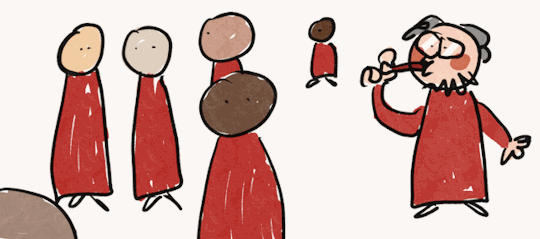


CONCLAVE 2024
I know it isn’t the same but since we don’t have the vape gifs yet I thought maybe this could hold you guys over 🚬
#it so so fucked up that we don’t have Tedesco vape sets yet#nobody needs them more than me#obsessed with the flamboyant freak#conclave 2024#conclave movie#ralph fiennes#conclave#catholic priest#stanley tucci#the pope#conclave fanart#cardinal tedesco
800 notes
·
View notes
Text
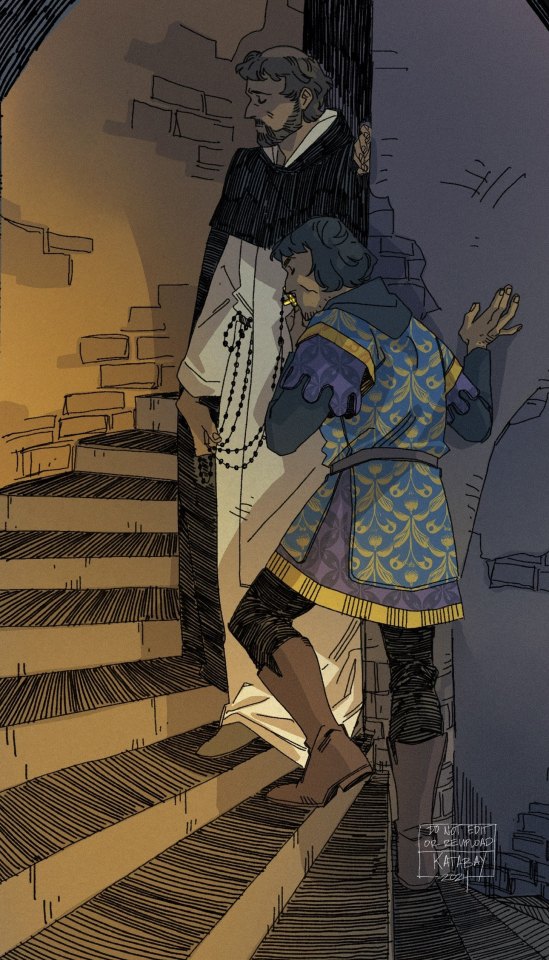
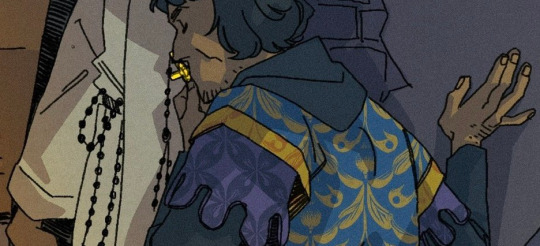
ONCE UPON A TIME, THERE WAS A KNIGHT...
the visual inspiration for this was a combination of Frederic William Burton's Meeting on the Turret Stairs and also Bernardo Cavallino's The vision of St. Dominic receiving the Rosary from the Virgin
this was supposed to be just a one off illustration to get the thoughts out of my system, but then I started thinking about medieval politics and warfare and plagues and a castle and home as both a place of refuge, a prison, and a tomb, so perhaps they will end up as ex voto characters as well.
you may say, hey! that rosary looks like it has too many beads! it's a fifteen decade rosary, probably. dominicans are really into marian devotions. it works out.
also. spiral style stair cases. oh boy. it was that unexpectedly more difficult than I originally thought it would be to draw. the more I think about it, the less I understand them, even though I had a million photos of the stairs in front of me while I was drawing it.
⭐ I have a tip jar (ko-fi)!
⭐ and other places I’m at! bsky / pixiv / pillowfort /cohost / cara.app
#the economy and my bank account are in shambles and i ended up stress drawing this whole thing in one go#its so many lines. the next time i draw this. because i will be revisiting this composition. i want to use a different inking brush#i think. but the next time i draw this it will be with solid blacks on the stair case steps i think#hey here's a fun fact for those of you who aren't catholic. did you know that kissing the ring of the pope/a cardinal/etc#grants you an indulgence. cardinals also used to kiss the pope on the mouth. also foot and hand iirc. anyway#there are no cardinals in this drawing but im saying if you write medieval/renaissance smut about men of the cloth#you can really amp up the friction between holy and seductive with a lot of the (gestures vaguely) that.#actually another fun fact about cardinals. their fun sun hat (it's called a galero) has some fucking weird as hell fever dream (literally)#origin lore. so if seductive isn't your thing. the horror of a thing that you wear is also extremely fun#esp when you get into medieval gender performances of clothes and how they define a person etc#generic medieval tag#original tag
2K notes
·
View notes
Text
I'm so genuinely heartened to see Pope Francis make this statement for the dignity and sanctity of Palestinian life.
The "Nativity of Bethlehem 2024" unveiled by Pope Francis, crafted by Palestinian artisans from Bethlehem, shows the infant Jesus laying on a Keffiyeh.
Around the star of Bethlehem above are the words "Glory to God in the highest, and on earth peace, good will toward men" (Luke 2:14) in both Latin and Arabic.
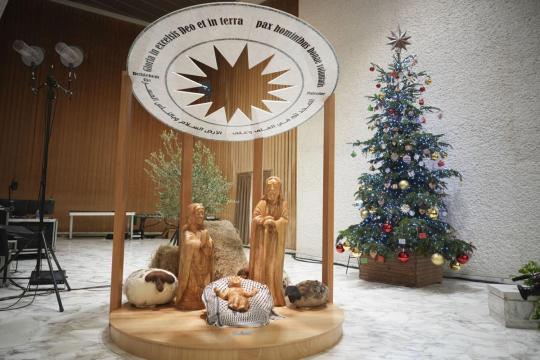



The Pope also made this statement:

It's so important this Advent to remember that Jesus was a Palestinian Jew, and that there is an ongoing genocide against the very people through which He came to us. We cannot contemplate Biblical Bethlehem without remembering the horrors that plague modern day Bethlehem.
On a personal note, as a trans Catholic-in-training, I've been pretty disappointed with Pope's public statements recently on issues such as trans rights, so I'm glad to see him make a stance on the right side of history.
#palestine#free palestine#free gaza#pope francis#nativity#advent#jesus was palestinian#christians for a free palestine#catholics for a free palestine#stop the genocide#vatican#christianity#catholicism#christian faith#christmas#palestinian christians#jesus christ
410 notes
·
View notes
Text


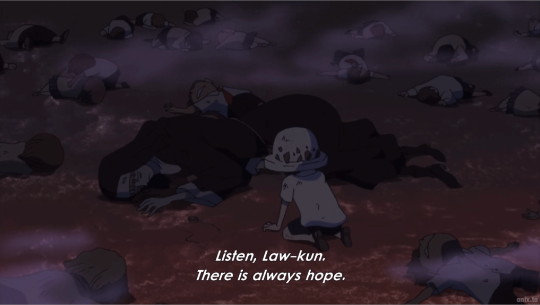
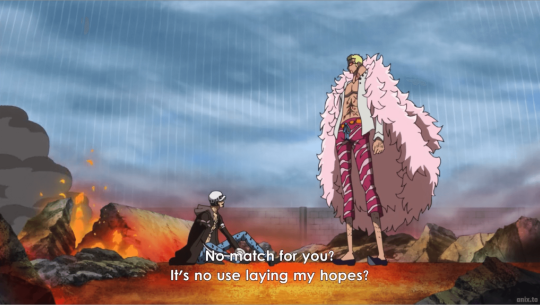


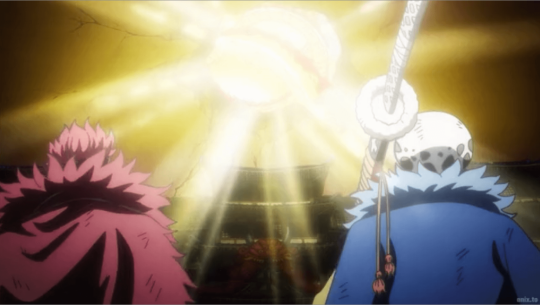


thinking about how law was (apparently??) being raised in the one piece catholic church™. thinking about how he specifically refers to the victories of the strawhats as miracles. thinking about how luffy has a god's devil fruit. thinking about law inclining his head and closing his eyes like he's praying towards the end of gear 5 luffy fighting kaido. is this anything.
#one piece#one piece spoilers#trafalgar law#and I guess I'll throw in a#lawlu#this isn't even me lawlu truthing tbh#i don't know what it is. but this post has been pinging around in my brain for 24 hours#law being raised catholic funny as shit to me btw#90% of his damage i'll chalk up to The Various Traumas and the rest is the catholicism#chinhands. is there a pope in one piece.#also sorry about the horrific quality images these are phone screenshots of a random streaming site
3K notes
·
View notes
Text

This is why you shouldn’t trust the secular media to report on Pope Francis 😂
338 notes
·
View notes
Text
Technically, if the pope is invited onto a Mystery Science Theater 3000 show, any riffs he makes will be considered canon to the movie, as he's speaking ex cathedra (latin for "from the seat") - the theater seat.
#you ever want to make jokes about catholic doctrine and mst3k?#is it more or less weird that I'm not catholic?#or that I'm a pope?
365 notes
·
View notes
Text
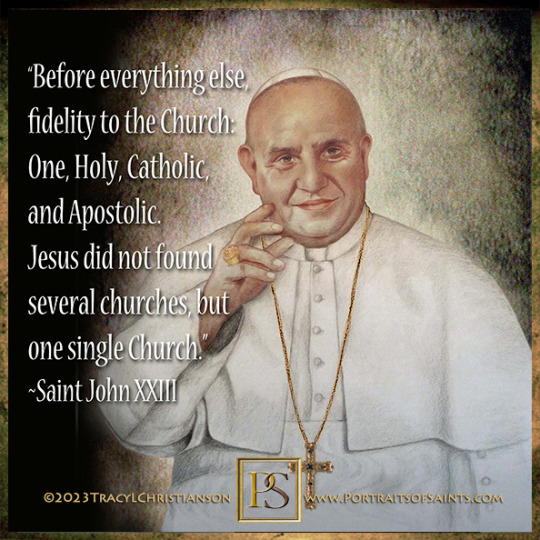
Pope St. John XXIII
1881-1963
Feast Day: October 11
Patronage: Papal Delegates, Patriachary of Venice, Second Vatican CouncilCanonized 2014
Pope John XXIII, affectionally called “The Good Pope”, was born to a large poor sharecropping family. He graduated from college with a doctorate in theology and was ordained a priest in 1904. In 1914 he was drafted into the Italian army and served as a chaplain and stretcher-bearer. Throughout his career, he worked in many church programs including the Society for the Propagation of the Faith, saved thousands of Jews during WWII, was named “Righteous Gentile”, nuncio in France, and Apostolic delegate to Bulgaria, Greece, and Turkey. In 1958 he was unexpectedly elected Pope and in 1962, he called an ecumenical council (Vatican II). He died of stomach cancer in 1963.
Prints, plaques & holy cards available for purchase here: (website)
61 notes
·
View notes
Note
Pope John XXIII
Pope JP2
Pope Paul VI
Pope Pius X
oh oh oh oh getting some popes all up in here!!!
I have some OPINIONS about these men! I love John XXIII, thank you for bringing us Vatican 2, my man.
Pope JP2, I like you, I do, but your Theology of the Body really needed more work.
Pope Paul VI, I also like you very much, but I feel you could have listened better at the sessions during the latter half of Vatican 2.
Pope Pius X, I don't know much about you and I'm sorry there are weird sedevacantists who founded a society in your name and continue being weird.
anyway, new saints for our list! everyone will probably need another nomination to make it to the modern bracket!
#pope john xxiii#pope john paul ii#pope paul vi#pope pius x#catholic#catholic popes#catholicism#catholic saint tournament
2 notes
·
View notes
Text
LUCE (Catholic Anime mascot) fan art
220 notes
·
View notes
Text



IDF: “We are the most moral army in the world.”
Guys, you literally bombed a church full of nuns.
#middle east#democrats#republicans#catholic#pope francis#politics#donald trump#joe biden#Gaza strip#Idf#Terrorism#catholiscism
852 notes
·
View notes
Text

# do you think the Pope is catholic enough if he’s not homophobic
#or maybe you’re not catholic. just hateful and homophobic
#pope#religion#catholic#christianity#religious#christian faith#jesus christ#gay#queer#mlm#homosexual#homoseuxality#lgbt#lgbtq community#lgbtqia#meme#memes#pride
190 notes
·
View notes